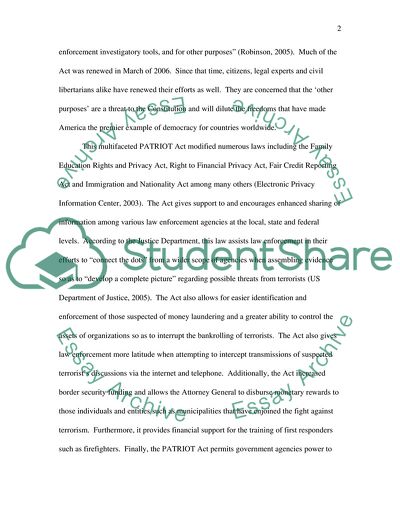Cite this document
(The USA PATRIOT Act Assignment Example | Topics and Well Written Essays - 1750 words, n.d.)
The USA PATRIOT Act Assignment Example | Topics and Well Written Essays - 1750 words. https://studentshare.org/law/1705200-the-usa-patriot-act-and-public-policy-surrounding-due-process
The USA PATRIOT Act Assignment Example | Topics and Well Written Essays - 1750 words. https://studentshare.org/law/1705200-the-usa-patriot-act-and-public-policy-surrounding-due-process
(The USA PATRIOT Act Assignment Example | Topics and Well Written Essays - 1750 Words)
The USA PATRIOT Act Assignment Example | Topics and Well Written Essays - 1750 Words. https://studentshare.org/law/1705200-the-usa-patriot-act-and-public-policy-surrounding-due-process.
The USA PATRIOT Act Assignment Example | Topics and Well Written Essays - 1750 Words. https://studentshare.org/law/1705200-the-usa-patriot-act-and-public-policy-surrounding-due-process.
“The USA PATRIOT Act Assignment Example | Topics and Well Written Essays - 1750 Words”. https://studentshare.org/law/1705200-the-usa-patriot-act-and-public-policy-surrounding-due-process.


